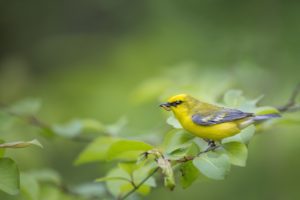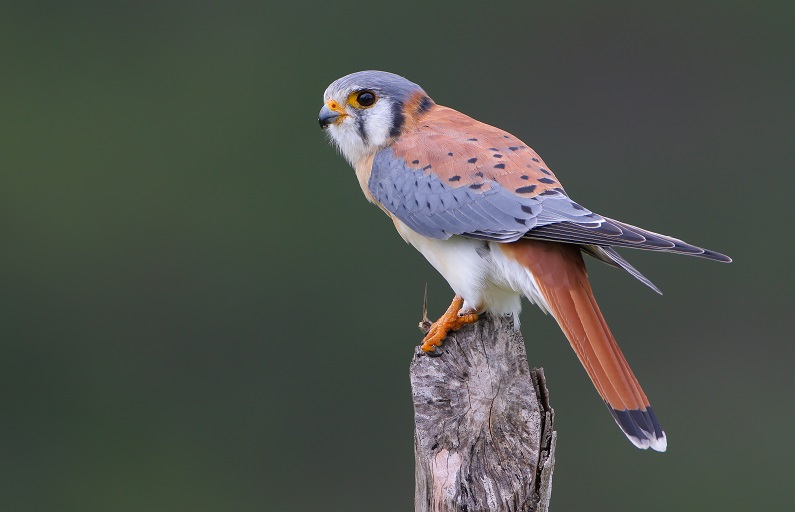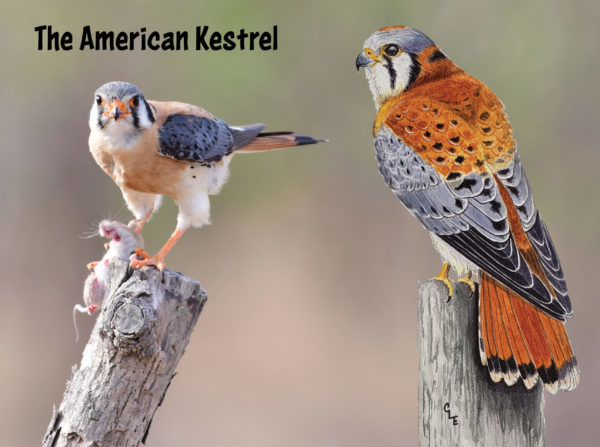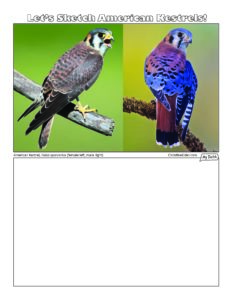All About American Kestrels and How to Sketch Them
The American Kestrel, Falco sparverius, is North America’s smallest falcon, only about the size of a robin, bearing especially long wings and tail. It is also the most numerous and widespread American member of the Falconidae family and the only one of 13 kestrels found globally that occurs in the Western Hemisphere.
It’s among the most colorful of raptors, sporting a boldly patterned head and warm rufous back and tail. The adult male (pictured here) bears slate-colored wings, while the female bears multiple bars on her tail.
As its name suggests, this kestrel ranges throughout the Americas from Alaska to Argentina. These birds can be spotted in open habitats such as meadows, shrublands, grasslands, agricultural fields, pastures, forest edges, and even deserts.
They enjoy dining on a wide variety of prey including small songbirds, bats, rodents, lizards, frogs, and especially insects like grasshoppers, cicadas, beetles, and dragonflies. Kestrels make their nests in rock crevices, nooks in buildings, cavities of large trees, and will readily take to artificial nest boxes as well.
AMERICAN KESTREL WEBINAR
Watch below the replay of a live, online, interactive presentation on the American Kestrel. I shared fascinating facts about these raptors and then led you through a step-by-step sketching demonstration. You may download the high-resolution images for sketching practice at the links below the video.
DOWNLOAD IMAGE FOR SKETCHING TUTORIAL
CLICK HERE to download your high-resolution kestrel image (as seen below). Christine will be using this image in her step-by-step demonstration.
And CLICK HERE to download full-page photos of 5 more kestrels to practice sketching!
More Bird Resources on this Website
Here are some more stories, videos, and bird sketching resources I’ve written.
World Migratory Bird Day and Why Birds Migrate
My Costa Rica Birding Big (sketching) Day
Identifying Warblers in the Spring
A Black-headed Grosbeak Nest (video)

Blue-winged Warbler
Did You Enjoy This Story?
If you’ve found value in this story and believe in my mission to educate youth and adults alike on the value of nature, I invite you to make a donation to help broaden and deepen the work I can accomplish.
Click the Paypal ‘Donate’ button below to donate any amount you wish to support the conservation and education work I do. You don’t need to have a Paypal account to donate, you may also choose to use a credit card, or simply send put a check in the mailbox if you wish. Thank you!



